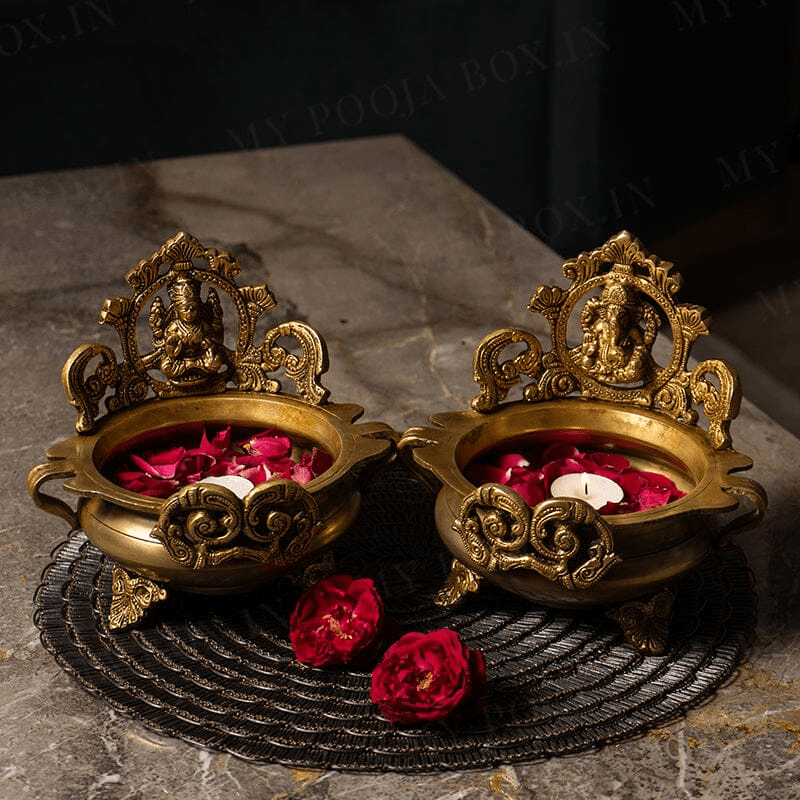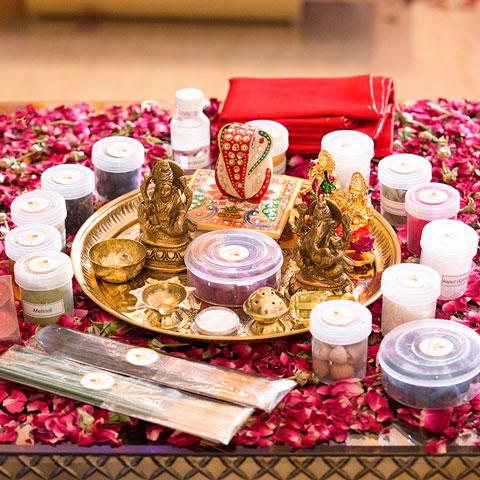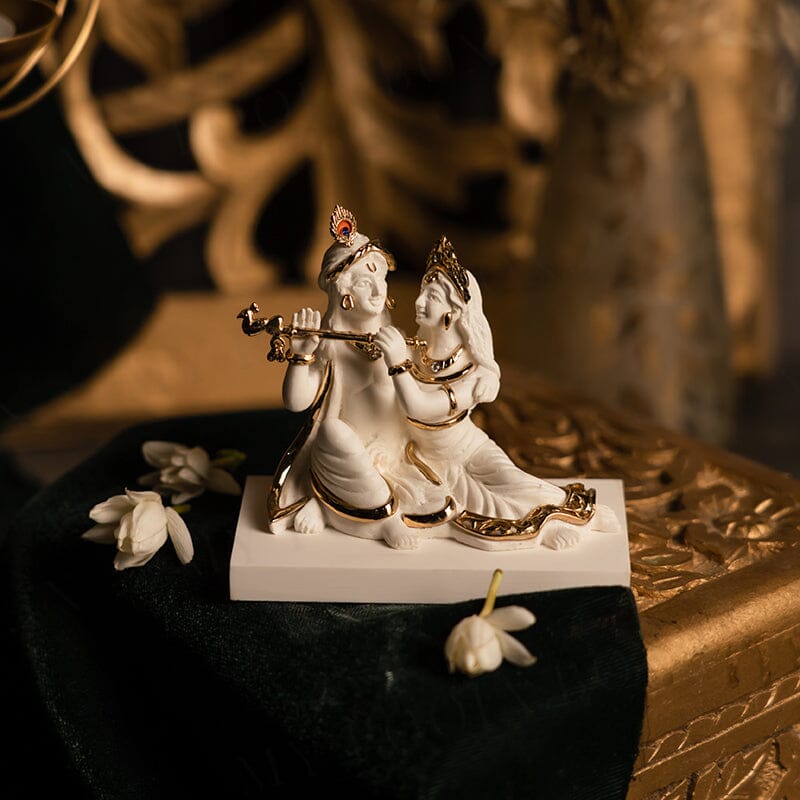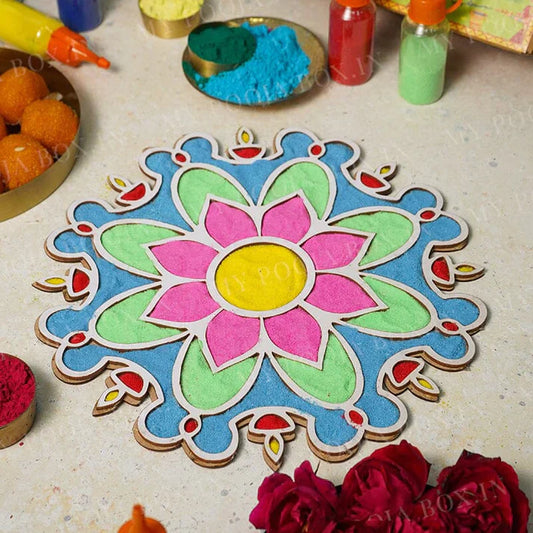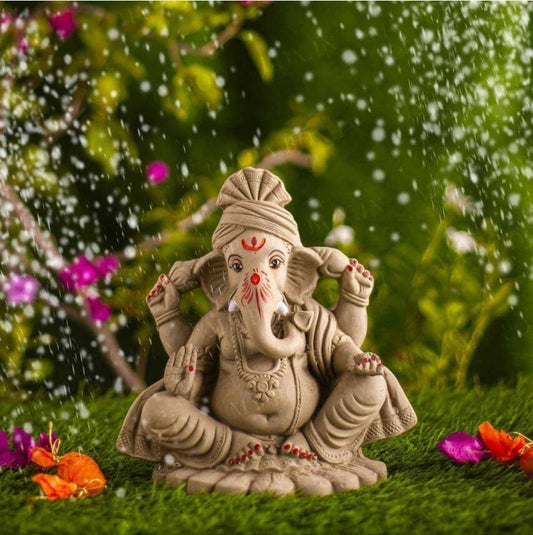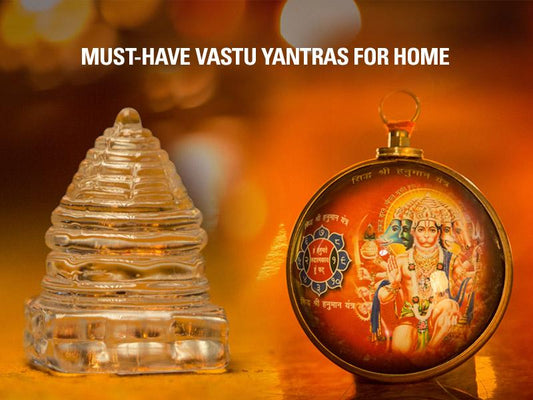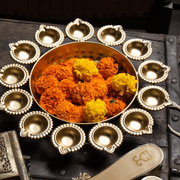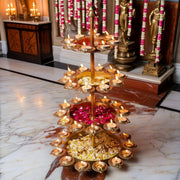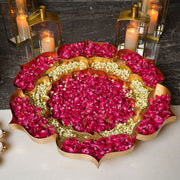Ready to delve deeper into the mystique of the divine? Lord Shiva, the Mahadeva, embodies destruction, creation, and transformation. His essence is captured not just in his iconic imagery but also in his myriad names, each revealing a unique facet of his boundless nature. Embark on a spiritual journey with the sacred 108 Names of Lord Shiva!
At My Pooja Box, we invite you to discover the profound meanings behind these holy names and experience the immense power of chanting Shiva Mantra. From the fierce Rudra to the benevolent Shankar, each name offers a unique gateway to understanding this supreme Hindu Deity.
The Significance of Chanting the 108 Names of Lord Shiva
In Hinduism, the number 108 is considered sacred. It is believed to represent the universe's totality, the connection between the Sun, Moon, and Earth, and the number of beads on a Japamala (rosary used for chanting). Chanting the 108 Names of Lord Shiva is a powerful practice that allows devotees to meditate on different aspects of Shiva's divine qualities, purify their minds, and invite his blessings into their lives.
Discovering Lord Shiva's Diverse Manifestations
Each of the 108 Names of Lord Shiva is a mantra in itself, a key to unlocking specific energies and understanding his multifaceted personality. Let's explore some of these divine appellations and their deep meanings:
-
PINAKI: The Bow-Wielding Lord, symbolizing his power to destroy evil.
-
GIRISH: Lord of Mountains, representing his abode in the Himalayas and his unshakeable stillness.
-
UMAPATI: Lord of Uma (Parvati), highlighting his role as the divine consort.
-
NAGESHWARA: Lord of Serpents, signifying his control over creation and destruction.
-
VYOMKESHA: Sky-Haired, emphasizing his boundless and all-encompassing nature.
-
JATADHARA: Matted-Hair Bearer, depicting his ascetic and detached form.
-
KAPALIN: Skull-Bearer, a fierce aspect representing his dominion over death and liberation.
-
CHANDRAPRAKASH: Moon-Lit, representing his calming and illuminating presence.
-
SHASHANKASHEKHARA: Moon-Crested, symbolizing his control over time and cycles.
-
MAHA YOGI: The Great Ascetic, the ultimate practitioner of Yoga and meditation.
-
DAKSHINAMURTHY: South-Facing Teacher, Shiva as the universal guru, bestowing knowledge.
-
HARA: The Remover of Sins, purifying devotees from their negative karmas.
-
SMASHANA VASIN: Dweller of Cremation Grounds, signifying his detachment from the material world and mastery over fear.
-
KALA-KALA: The Lord of Time, meaning he is beyond the grasp of time itself.
-
KRISHNASARA: Black Antelope Skinned, referring to his attire and connection with nature.
-
RISHABHA-VAHANA: Bull-Rider, with Nandi the bull as his faithful mount.
-
MATTA: The Intoxicated One, referring to his divine bliss and detachment.
-
PRASANNATMA: The Cheerful Soul, depicting his benevolent and joyful aspect.
-
SADASHIVA: The Eternal Auspicious One, symbolizing his everlasting purity and goodness.
-
ANUGRAHADA: The Bestower of Grace, showering blessings upon his devotees.
-
PUNYAHA: The Sacred One, symbolizing holiness and spiritual merit.
-
BHAGAVAN: The Supreme Lord, possessing all divine opulences.
-
ATMA-YOGI: The Soul-Yogi, master of the inner self.
-
APARAJITA: The Undefeated, symbolizing his invincibility.
-
GOPATI: Lord of Cows, representing his nurturing and protecting qualities.
-
VISHALAKSHA: Wide-Eyed, symbolizing his all-seeing nature.
-
SHAMBHU: The Auspicious One, the source of all happiness and well-being.
-
SHIVAH: The Pure One, denoting his untainted and supreme nature.
-
MAHESHVARA: The Supreme Lord, the greatest ruler of the cosmos.
-
SHANKAR: The Bestower of Happiness, bringing joy and prosperity.
-
RUDRA: The Fierce One, representing his destructive and transformative power.
-
NILAKANTHA: The Blue-Throated, from consuming poison to save the world.
-
MRITYUNJAYA: The Conqueror of Death, bestowing immortality and protection.
-
MAHADEVA: The Great God, a widely used appellation for his supreme status.
-
TRIPURANTAKA: The Destroyer of Three Cities, symbolizing his power to overcome evil.
-
GANGADHARA: The Bearer of the Ganges, holding the sacred river in his matted locks.
-
ARDHANARISHVARA: The Half-Male, Half-Female, symbolizing the union of Shiva and Parvati.
-
NATARAJA: The Lord of Dance, representing the cosmic dance of creation and destruction.
-
DIGAMBARA: Clothed in Space, signifying his detachment and all-pervading nature.
-
CHANDRASHEKHARA: Crescent Moon Adorned, highlighting his connection to cosmic cycles.
-
PASHUPATI: The Lord of Animals (or living beings), protector of all creatures.
-
BHOLENATH: The Simple and Innocent Lord, known for his easygoing nature and quick blessings.
-
SOMESHWARA: Lord of the Moon, a form worshipped for granting desires.
-
VISHWANATH: Lord of the Universe, signifying his omnipresence.
-
KEDARNATH: Lord of Kedar (a revered Himalayan shrine), emphasizing his sacred abodes.
-
AMARNATH: The Immortal Lord, another name for his eternal nature.
-
KAILASHPATI: Lord of Mount Kailash, his divine abode.
-
BHAIRAVA: The Fierce Form, a powerful manifestation.
-
VIRABHADRA: The Heroic Warrior, a formidable manifestation.
-
AGHORA: The Non-Terrifying, yet powerful and intense aspect.
-
SARVESHWARA: The Lord of All, supreme over everything.
-
TRILOCHANA: The Three-Eyed Lord, with the third eye symbolizing wisdom.
-
KRITTIVASAH: Clothed in Elephant Hide, representing his triumph over ego.
-
AVYAYA: The Indestructible One, eternal and unchanging.
-
SHARVA: The Destroyer, a powerful aspect of transformation.
-
PARAMESHVARA: The Supreme God, the ultimate divine being.
-
STHANU: The Immovable, symbolizing his steadfastness.
-
TRYAMBAKAM: The Three-Eyed One, another reference to his wisdom.
-
ANDHAKANTAKA: The Slayer of Andhaka (a demon), representing victory over darkness.
-
YOGADHYAKSHA: The Lord of Yoga, the ultimate master of yogic practices.
-
HIRANYARETAS: The Golden Seed, symbolizing his creative potential.
-
DHURJATI: The Matted-Haired, reflecting his ascetic form.
-
PRANAVA: OMKARA, the embodiment of the sacred sound Om.
-
VACHASPATI: The Lord of Speech, controlling all communication.
-
ATRIPUTRA: Son of Atri, referring to his divine birth.
-
GUHADHYAKSHA: The Lord of Guha (Kartikeya), signifying his fatherly role.
-
MRIDA: The Gracious One, showering mercy.
-
VYAGHRAJINAMBARA: Clothed in Tiger Skin, symbolizing his power over wildness.
-
TAPASVI: The Ascetic, representing his rigorous penance.
-
UGRA: The Fierce, another powerful and awe-inspiring aspect.
-
KAPARDI: The Matted-Hair, a distinctive feature.
-
SHULINI: The Trident-Holder, wielding his iconic weapon.
-
SHRESTHA: The Supreme, meaning the most excellent.
-
LOKANATHA: The Lord of the World, overseeing all realms.
-
VARADA: The Boon-Giver, fulfilling desires.
-
JITENDRIYA: The Conqueror of Senses, illustrating self-mastery.
-
SHANTA: The Peaceful, representing his tranquil nature.
-
DHATRI: The Supporter, sustaining the universe.
-
DHYANA-GAMYA: Attainable Through Meditation, emphasizing spiritual practice.
-
SIDDHIDA: The Bestower of Success, granting achievements.
-
AVYAKTAH: The Unmanifested, beyond perception.
-
SURYA: The Sun, an embodiment of light.
-
CHANDRA: The Moon, reflecting his serene aspect.
-
YAJAMANA: The Sacrificer, partaking in rituals.
-
KAMA-NASHA: The Destroyer of Desires, leading to liberation.
-
DAKSHA-ADHVARA-NASHA: The Destroyer of Daksha's Sacrifice, highlighting his cosmic justice.
-
NIRANJANA: The Spotless, pure and untainted.
-
JEEVA: The Living Being, the essence of life.
-
BHUTAPATI: The Lord of Beings, governing all life forms.
-
BHUTNATH: The Lord of Spirits, ruling over unseen realms.
-
SADYOJATA: The Instantly Born, one of his five faces.
-
VAMADEVA: The Beautiful God, another of his five faces.
-
AGHORA: The Non-Terrifying, yet formidable, one of his five faces.
-
TATPURUSHA: The Cosmic Being, another of his five faces.
-
ISHANA: The Ruler, another of his five faces.
-
ANANTA: The Infinite, limitless and eternal.
-
AVYAKTA: The Unmanifested, beyond form.
-
DAKSHINA-MURTI: The South-Facing Form, as a supreme teacher.
-
ADI-DEVA: The First God, primordial.
-
ADI-GURU: The First Teacher, the source of all knowledge.
-
ADI-NATHA: The First Lord, supreme and eternal.
-
BRAHMA: The Creator, an aspect of the trinity.
-
VISHNU: The Preserver, an aspect of the trinity.
-
MAHESHWARA: The Supreme Lord, another reference to his ultimate power.
Experience the Power of Chanting
Chanting these holy names is a profound way to connect with Lord Shiva's divine energy. Each repetition resonates with a specific aspect of his consciousness, purifying your mind, calming your spirit, and bringing you closer to his boundless grace. It's a powerful tool for spiritual journey and meditation, leading to inner peace and clarity.
At My Pooja Box, we offer a curated selection of spiritual items, including beautiful Lord Shiva idols, Rudraksha malas for chanting, and sacred homedecor items to enhance your devotional practice.
Explore our collection today and invite the blessings of Lord Shiva into your life. Shop now at mypoojabox.in!


